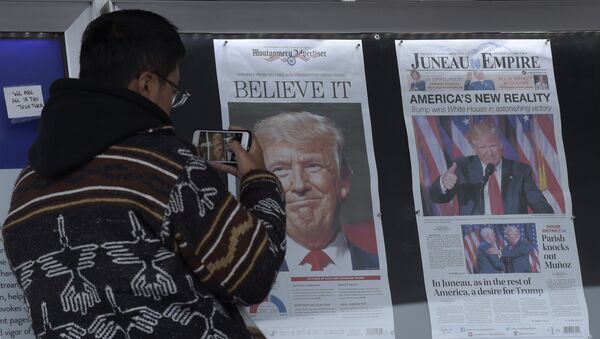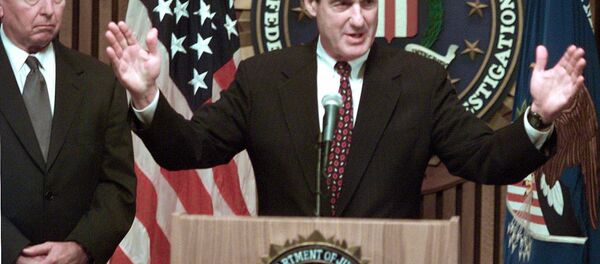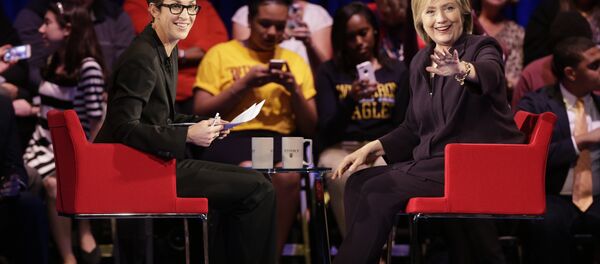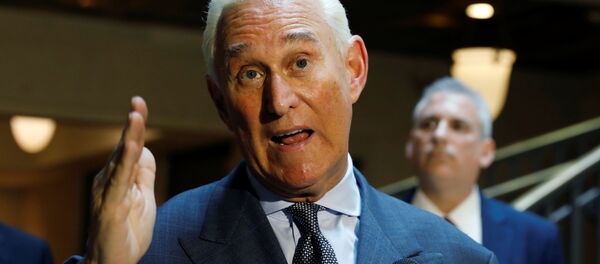WASHINGTON (Sputnik) — Last week, Page, an informal foreign policy adviser to the Trump’s campaign, testified to the HIC that he sent an email to other Trump aides describing "a private conversation" he had with a senior Russian official during his trip to Moscow in July 2016, according to US media reports.
Page, whose sworn testimony was released on Monday, has come under scrutiny as part of the investigation into alleged Russian meddling in the US presidential campaign.
US Public Does Not Find Trump-Russia Conspiracy Claims Credible
University of Pittsburgh lecturer and human rights lawyer Dan Kovalik, author of "The Plot to Scapegoat Russia," told Sputnik that the US corporate-owned media had failed in its attempt to make the Trump-Russia conspiracy theory credible in the eyes of the public.
"The Russia-gate scandal continues to become more and more absurd," Kovalik said. "Now the mere fact that a Trump campaign adviser went to Russia and that [current US Attorney General] Jeff Sessions knew he went, is somehow evidence of a crime."
Despite the media's efforts, it was now clear that Russia had not welded any influence on the US public and election campaign through the social media, Kovalik pointed out.
However, the desperate and unsuccessful attempts to blame Russia for Trump's surprise 2016 election victory and for Hillary Clinton's defeat had created an atmosphere of hysteria reminiscent of the demagoguery of the late US Senator Joe McCarthy in the 1950s, Kovalik warned.
"Anyone with any connection to Russia is somehow suspect, just as during the first Cold War and during the McCarthy witch hunts," he said.
The fear was based on the false assumption that Russia had been the enemy of the United States, Kovalik pointed out.
"Of course, all of this hinges on the assumption that Russia is an enemy of the United States — an assumption which I believe has never been true. While the United States has chosen to designate Russia as an enemy for many decades, it never had to be that way," he said.
Russia had consistently sought constructive, cooperative relations with the United States, Kovalik pointed out.
"Russia has always been willing to have peace with the US and the West if only the latter would oblige," he said.
"Of course, members of any US administration should be going to Russia to maintain good relations and to work on matters of common concern; that this is somehow seen as a problem is simply baffling," he said.
Kovalik also predicted that although the allegations had been disproved or exposed as lacking evidence, they would still be utilized, especially by liberals, as an excuse to suppress freedom of speech within the United States.
"I fear that the mere allegations about this will be used to shut down dissent and free speech. That significant members of the liberal establishment, such as [Hollywood movie director] Rob Reiner, are pushing this assault against free speech is discouraging at best," he said.
"We live in a renewed McCarthy period, now being pushed by the very forces who were persecuted during the first one. [Writer George] Orwell is rolling over in his grave," he said.
Continued Russia-Trump Investigations Prove 'Big Yawn' to US Public
Retired professor and political commentator John Walsh agreed that that the congressional probes appeared to be going nowhere and that the indictments handed down so far from Special Counsel Robert Mueller's probe had failed to impress the US public.
"The big story may be that the Mueller story is not gaining traction with the American people… Above all, it is becoming a big yawn except in the precincts of the progressives like the New York Times and National Public Radio," Walsh said.
Mueller's probe had failed the attract the intense interest of the public the way the 1973-74 Watergate investigations against President Richard Nixon had done, Walsh said.






